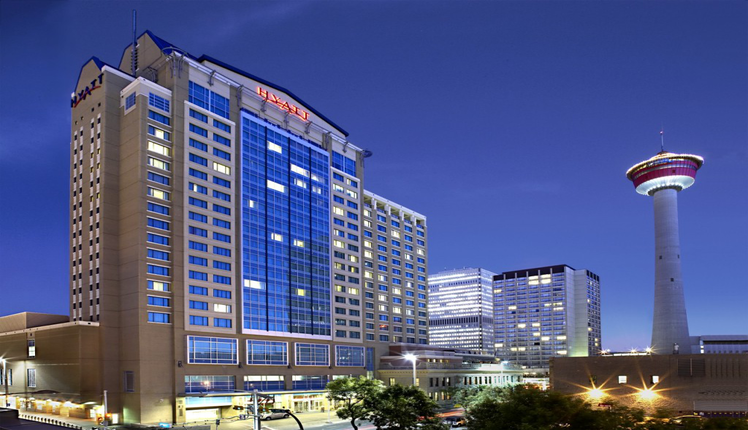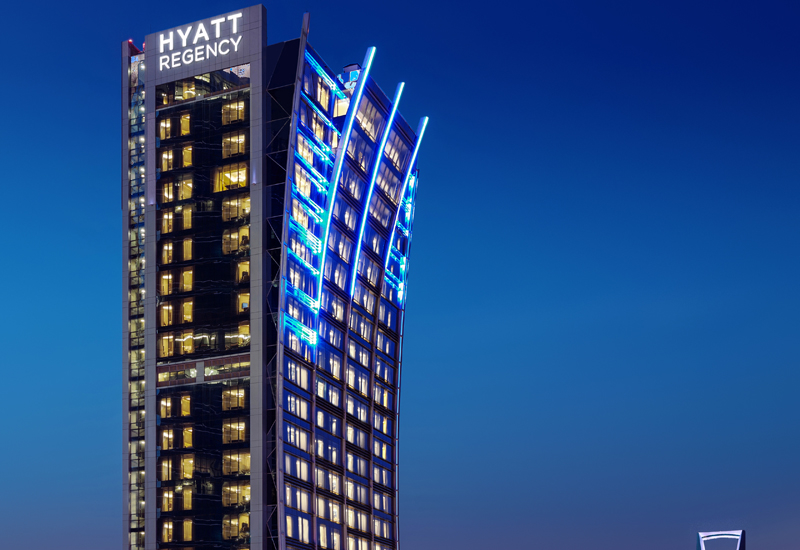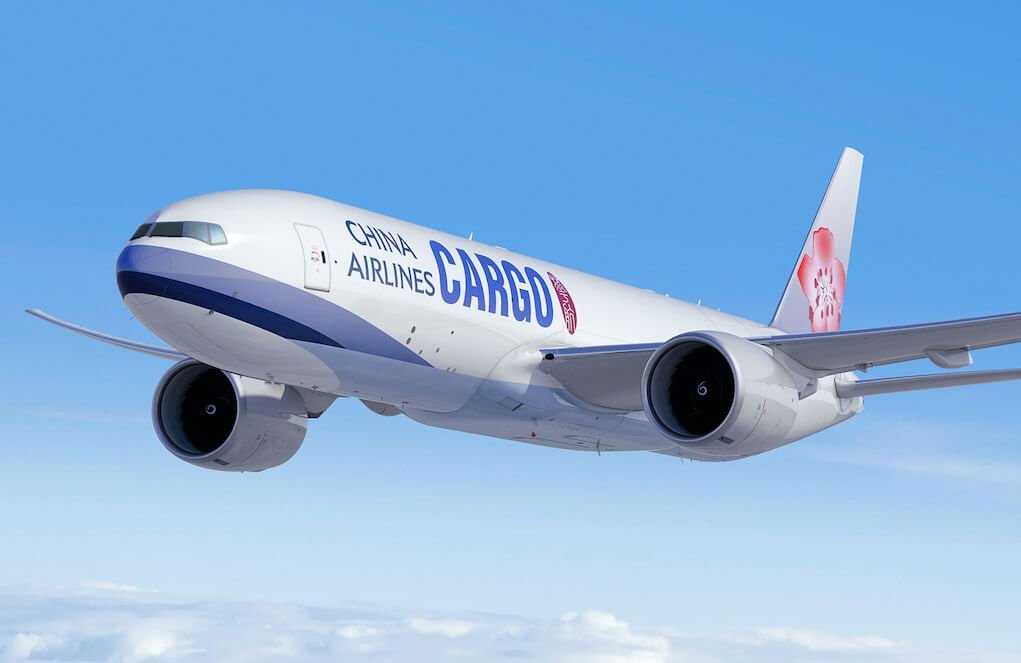
Strong Net Rooms Growth Fuels Nearly 11% Increase in Management and Franchise Fees
CHICAGO (October 30, 2019) – Hyatt Hotels Corporation (“Hyatt” or the “Company”) (NYSE: H) today reported third-quarter 2019 financial results. Net income attributable to Hyatt was $296 million, or $2.80 per diluted share, in the third quarter of 2019, compared to $237 million, or $2.09 per diluted share, in the third quarter of 2018. Adjusted net income attributable to Hyatt was $39 million, or $0.37 per diluted share, in the third quarter of 2019, compared to $37 million, or $0.33 per diluted share, in the third quarter of 2018. Refer to the table on page 14 of the schedules for a summary of special items impacting Adjusted net income and Adjusted earnings per share in the three months ended September 30, 2019.
Mark S. Hoplamazian, president and chief executive officer of Hyatt Hotels Corporation, said, “The strength of our brands and the consistent approach we have to operating with excellence and efficiency are serving us very well in this period of volatile economic conditions. In particular, our management and franchise fee growth of nearly 11% this quarter is driven by roughly 13% year-over-year net rooms growth. Further, we have successfully increased productivity and operating efficiency for 23 straight quarters which has allowed us to maintain strong hotel operating margins even in the face of flat RevPAR growth this quarter.”
Third quarter of 2019 financial highlights as compared to the third quarter of 2018 are as follows:
- Net income increased 25.4% to $296 million.
- Adjusted EBITDA decreased 7.3% to $163 million, a decrease of 6.5% in constant currency.
- Comparable system-wide RevPAR was flat, including a decrease of 0.1% at comparable owned and leased hotels. Comparable system-wide RevPAR growth was favorably impacted by approximately 50 basis points from the timing of the Jewish holidays, but was offset by a similar reduction resulting from political unrest in Hong Kong.
- Comparable U.S. hotel RevPAR decreased 0.6%; full service hotel RevPAR increased 0.2% and select service hotel RevPAR decreased 2.3%.
- Net rooms growth was 13.2%, or 7.9% excluding the acquisition of Two Roads Hospitality LLC (“Two Roads”) in the fourth quarter of 2018.
- Comparable owned and leased hotels operating margin decreased 20 basis points to 21.0%.
- Adjusted EBITDA margin of 26.9% decreased 280 basis points in constant currency.Mr. Hoplamazian continued, “We continue to execute on our capital strategy and shift our earnings profile while maintaining our focus on global growth. We expect to end the year with approximately 57% of our earnings coming from our hotel management and franchise business, an increase of roughly 400 basis points from 2018. Our pipeline remains robust while continuing to deliver solid organic net rooms growth of almost 8% this quarter, net of the acquisition of Two Roads in the fourth quarter of 2018. While theNote: All RevPAR and ADR percentage changes are in constant dollars. This release includes references to non-GAAP financial measures. Refer to the non-GAAP reconciliations included in the schedules and the definitions of the non-GAAP measures presented beginning on page 12.
current global operating environment is challenging, we feel confident in our ability to manage through volatility and identify opportunities to strengthen our brands and performance.”
Third quarter of 2019 financial results as compared to the third quarter of 2018 are as follows:
Management, Franchise and Other Fees
Total management, franchise and other fees increased 11.9% (12.5% increase in constant currency) to $148 million. Base management fees increased 17.8% to $64 million, primarily in the Americas management and franchising segment due to the acquisition of Two Roads. Incentive management fees decreased 1.3% to $33 million. Franchise fees increased 11.8% to $37 million. Other fees increased 22.0% to $14 million. Excluding other fees, management and franchise fees increased 10.9% (11.6% increase in constant currency) to $134 million.
Americas Management and Franchising Segment
Americas management and franchising segment Adjusted EBITDA increased 11.2% (11.4% increase in constant currency), driven by higher management, franchise, and other fees from the Two Roads acquisition and recently opened hotels. RevPAR for comparable Americas full service hotels increased 1.5%, occupancy increased 70 basis points, and ADR increased 0.7%. RevPAR growth was driven by strength in certain resort locations outside of the United States and benefited from the timing of the Jewish holidays which had an approximate 110 basis point favorable impact. RevPAR for comparable Americas select service hotels decreased 2.4%, occupancy decreased 40 basis points, and ADR decreased 1.8%. Total Americas management and franchising adjusted revenues increased 29.6% (29.9% increase in constant currency) including revenue from the residential management operations acquired as part of Two Roads.
Transient rooms revenue at comparable U.S. full service hotels increased 1.0%, room nights increased 2.3%, and ADR decreased 1.3%. Group rooms revenue at comparable U.S. full service hotels decreased 0.2%, room nights decreased 2.3%, and ADR increased 2.2%.
Americas net rooms increased 11.5% compared to the third quarter of 2018, or 5.2% excluding Two Roads.
Southeast Asia, Greater China, Australia, South Korea, Japan and Micronesia (ASPAC) Management and Franchising Segment
ASPAC management and franchising segment Adjusted EBITDA increased 0.9% (2.5% increase in constant currency). RevPAR for comparable ASPAC full service hotels decreased 2.0%, reflecting weakness in Hong Kong. Excluding Hong Kong, RevPAR for comparable ASPAC full service hotels would have increased 0.8%. Occupancy decreased 50 basis points and ADR decreased 1.3% for ASPAC full service hotels. Revenue from management, franchise, and other fees increased 4.2% (5.4% increase in constant currency).
ASPAC net rooms increased 17.7% compared to the third quarter of 2018, or 13.7% excluding Two Roads.
Note: All RevPAR and ADR percentage changes are in constant dollars. This release includes references to non-GAAP financial measures. Refer to the non-GAAP reconciliations included in the schedules and the definitions of the non-GAAP measures presented beginning on page 12.
Europe, Africa, Middle East and Southwest Asia (EAME/SW Asia) Management and Franchising Segment
EAME/SW Asia management and franchising segment Adjusted EBITDA increased 4.8% (7.8% increase in constant currency). RevPAR for comparable EAME/SW Asia full service hotels increased 1.6%, driven by strong growth in certain European markets, including France and the United Kingdom, and Southwest Asia, offset partially by weaker performance in Russia which lapped the FIFA World Cup in 2018.
Occupancy increased 290 basis points and ADR decreased 2.6% for EAME/SWA full service hotels. Revenue from management, franchise, and other fees increased 2.2% (4.3% increase in constant currency).
EAME/SW Asia net rooms increased 15.6% compared to the third quarter of 2018, or 14.4% excluding Two Roads.
Owned and Leased Hotels Segment
Total owned and leased hotels segment Adjusted EBITDA decreased 17.6% (16.9% decrease in constant currency), including a decrease of 12.0% (11.4% decrease in constant currency) in pro rata share of unconsolidated hospitality ventures Adjusted EBITDA. Refer to the table on page 11 of the schedules for a detailed list of portfolio changes and the year-over-year net impact to total owned and leased hotels segment Adjusted EBITDA.
Owned and leased hotels segment revenues decreased 3.9% (3.0% decrease in constant currency), and was negatively impacted by non-comparable hotels. RevPAR for comparable owned and leased hotels decreased 0.1%. Occupancy and ADR were both flat.
Corporate and Other
Corporate and other Adjusted EBITDA decreased 22.4% (22.5% decrease in constant currency), inclusive of $6 million of expenses from the Two Roads acquisition.
Corporate and other adjusted revenues increased 19.1% (consistent in constant currency).
Selling, General, and Administrative Expenses
Selling, general, and administrative expenses increased 1.0%, inclusive of rabbi trust impact and stock- based compensation. Adjusted selling, general, and administrative expenses increased 13.8%, or $10 million, including $8 million of integration costs related to the acquisition of Two Roads. Refer to the table on page 17 of the schedules for a reconciliation of selling, general, and administrative expenses to Adjusted selling, general, and administrative expenses.
OPENINGS AND FUTURE EXPANSION
Twenty hotels (or 4,422 rooms) opened in the third quarter of 2019, contributing to a 13.2% increase in net rooms compared to the third quarter of 2018. Excluding the impact of the Two Roads acquisition, net rooms increased 7.9% compared to the third quarter of 2018.
As of September 30, 2019, the Company had executed management or franchise contracts for approximately 460 hotels, or approximately 92,000 rooms. The Company is expected to open approximately 85 hotels in the 2019 fiscal year.
Note: All RevPAR and ADR percentage changes are in constant dollars. This release includes references to non-GAAP financial measures. Refer to the non-GAAP reconciliations included in the schedules and the definitions of the non-GAAP measures presented beginning on page 12.
SHARE REPURCHASE/DIVIDEND
During the third quarter of 2019, the Company repurchased a total of 1,776,891 (1,099,507 Class A shares and 677,384 Class B shares) for approximately $133 million. The Company ended the third quarter with 36,811,374 Class A and 66,438,444 Class B shares issued and outstanding. From October 1 through October 25, 2019, the Company repurchased 523,499 shares of Class A common stock for an aggregate purchase price of approximately $37 million. As of October 25, 2019, the Company had approximately $351 million remaining under its share repurchase authorization.
The Company’s board of directors has declared a cash dividend of $0.19 per share for the fourth quarter of 2019. The dividend is payable on December 9, 2019 to Class A and Class B stockholders of record as of November 26, 2019.
CAPITAL STRATEGY UPDATE
In a Form 8-K filed on September 16, 2019, the Company announced the sale of the 1,260-room Hyatt Regency Atlanta for approximately $355 million to an unrelated third party and the entry into a long-term management agreement for the property upon sale.
The Company is in the process of pursuing the sale of one of its wholly-owned hotels and will provide further details as appropriate.
BALANCE SHEET / OTHER ITEMS
As of September 30, 2019, the Company reported the following:
- Total debt of $1,623 million.
- Pro rata share of unconsolidated hospitality venture debt of approximately $564 million, substantially all of which is non-recourse to Hyatt and a portion of which Hyatt guarantees pursuant to separate agreements.
- Cash and cash equivalents, including investments in highly-rated money market funds and similar investments, of $660 million, restricted cash of $140 million, and short-term investments of $63 million.
- Undrawn borrowing availability of $1.5 billion under Hyatt’s revolving credit facility.2019 OUTLOOK
The Company is revising the following expectations for the 2019 fiscal year:
- Comparable system-wide RevPAR is expected to increase approximately 0.5%, as compared to fiscal year 2018.
- Net income is expected to be approximately $431 million to $470 million. Please refer to the table on page 13 of the schedules for revised ranges impacting net income.
- Other income (loss), net is expected to be approximately $98 million to $103 million, reflecting increased interest income and unrealized gains on marketable securities. The estimated $40 million negative impact related to performance guarantee expense for the four managed hotels in France is unchanged.
- Adjusted EBITDA is expected to be approximately $730 million to $745 million, primarily reflecting a one point reduction in expected comparable system-wide RevPAR and the sale ofNote: All RevPAR and ADR percentage changes are in constant dollars. This release includes references to non-GAAP financial measures. Refer to the non-GAAP reconciliations included in the schedules and the definitions of the non-GAAP measures presented beginning on page 12.
Hyatt Regency Atlanta (as previously reported in a Form 8-K filed on September 16, 2019). Refer to the table on page 13 of the schedules for a reconciliation of Net Income to Adjusted EBITDA.
- Depreciation and amortization expense is expected to be approximately $329 million to $334 million.
- Interest expense is expected to be approximately $77 million.
- Adjusted selling, general, and administrative expenses are expected to be approximately $335 million. This is inclusive of approximately $25 million of expenses related to non-recurring integration costs for Two Roads. Adjusted selling, general, and administrative expenses exclude approximately $33 million of stock-based compensation expense and any potential impact related to benefit programs funded through rabbi trusts.The Company is reaffirming the following information for the 2019 fiscal year:
- The Company expects to grow units, on a net rooms basis, by approximately 7.25% to 7.75%, reflecting approximately 85 new hotel openings.
- Capital expenditures are expected to be approximately $375 million.
- As previously reported in an 8-K filed on September 16, 2019, the Company expects to return approximately $500 million to shareholders through a combination of cash dividends on its common stock and share repurchases.
- The effective tax rate is expected to be approximately 25% to 27%.
No additional disposition or acquisition activity beyond what has been completed as of the date of this release has been included in the outlook. The Company’s outlook is based on a number of assumptions that are subject to change and many of which are outside the control of the Company. If actual results vary from these assumptions, the Company’s expectations may change. There can be no assurance that Hyatt will achieve these results.



